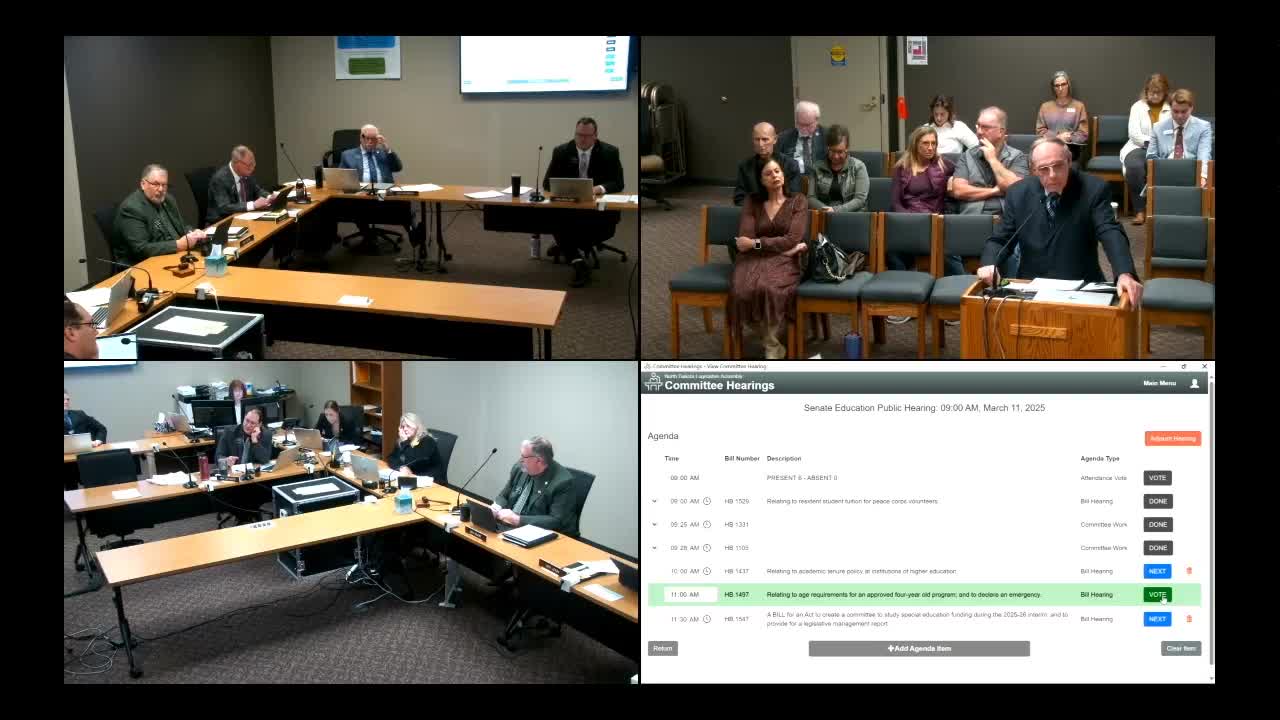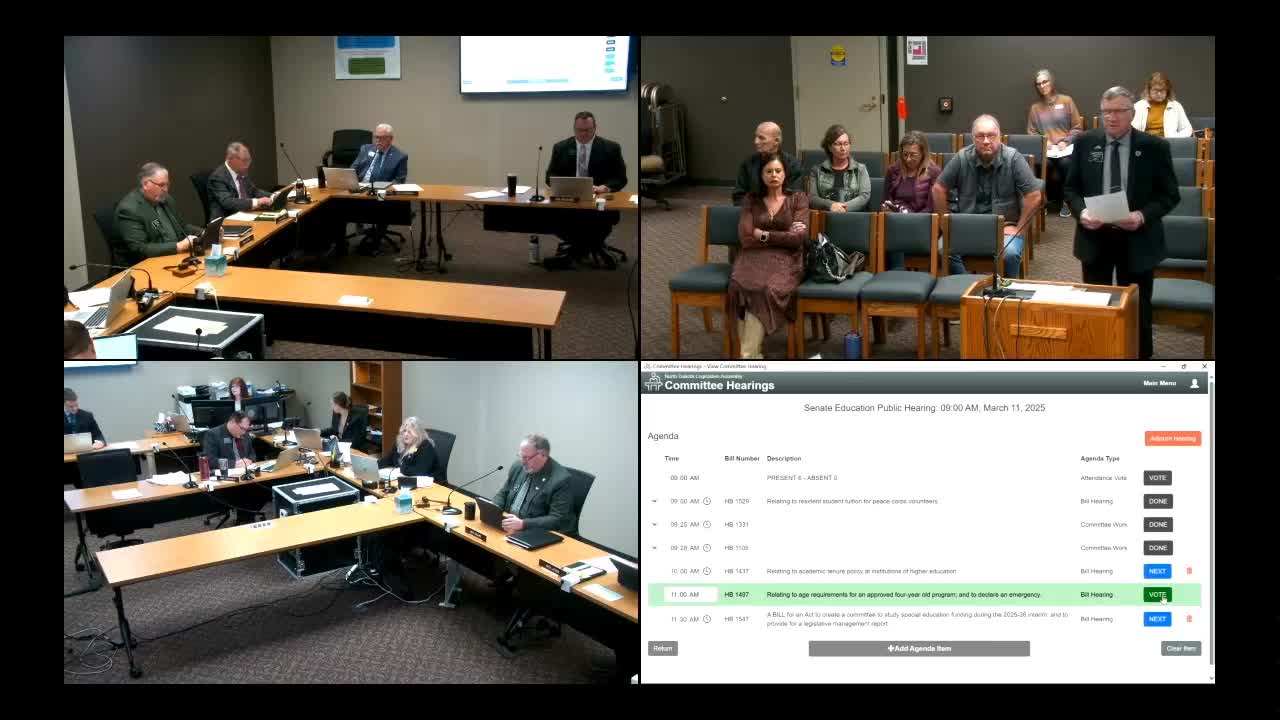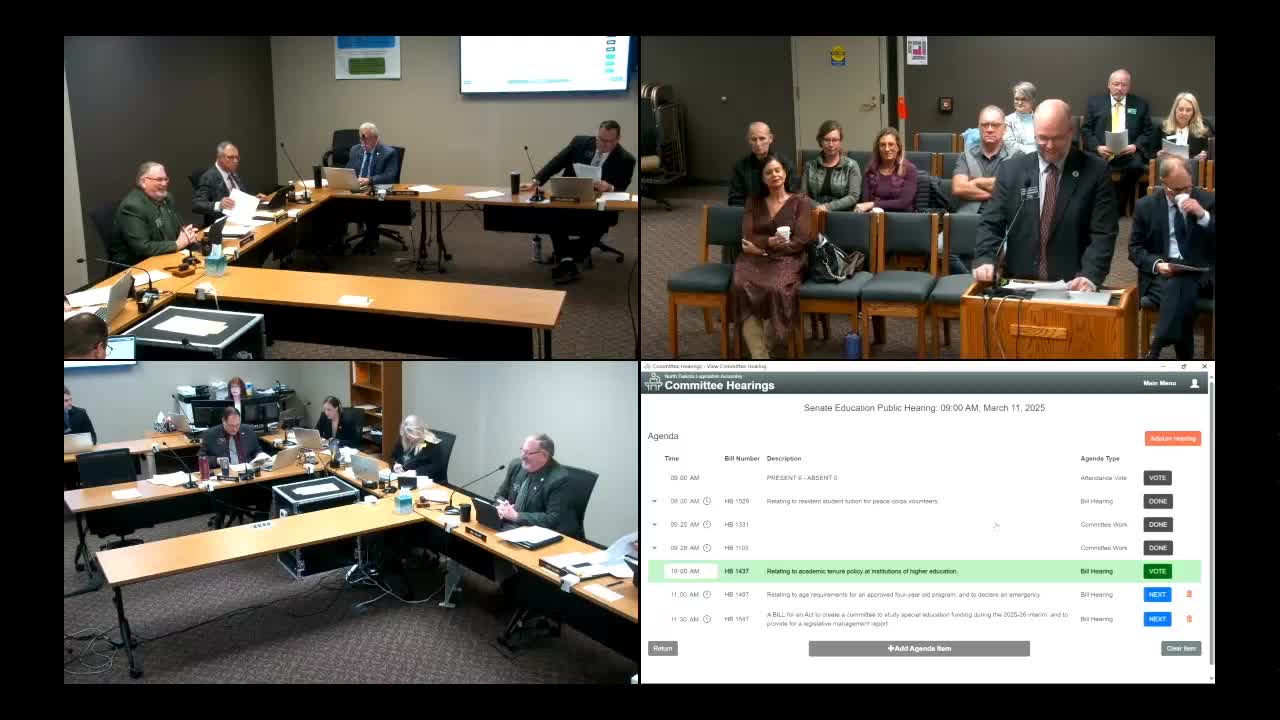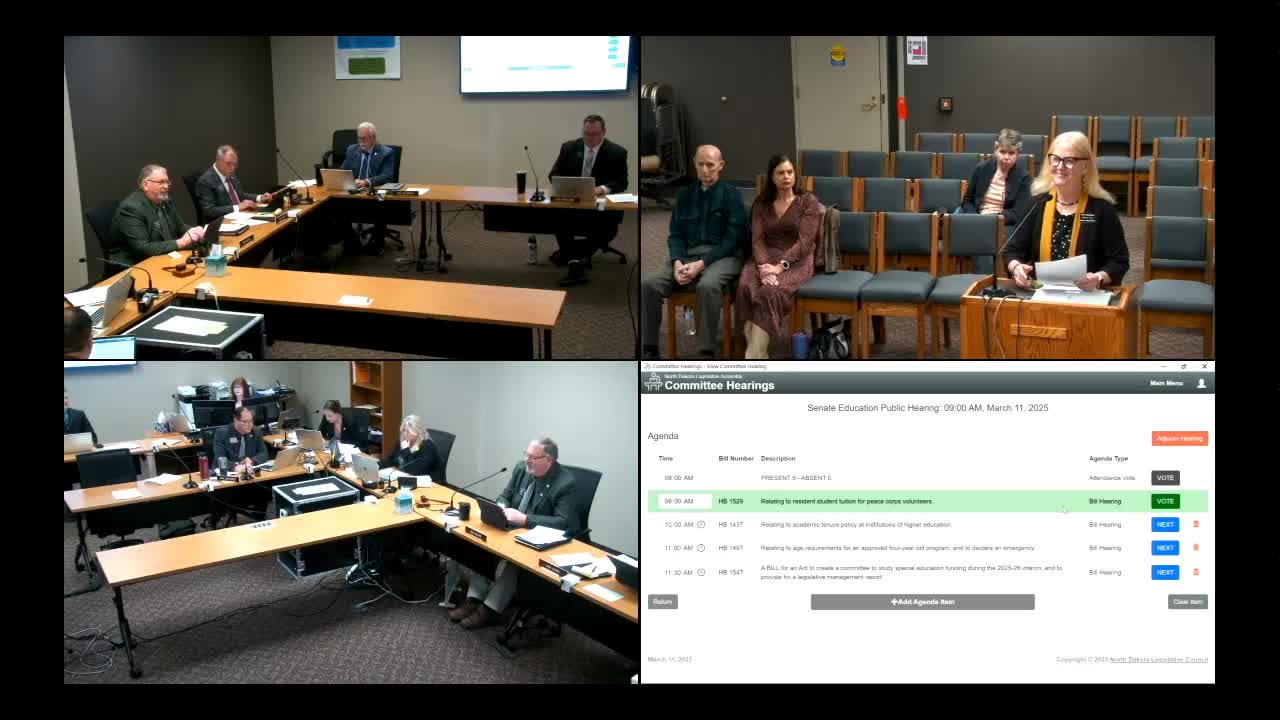Article not found
This article is no longer available. But don't worry—we've gathered other articles that discuss the same topic.

Bill would create interim study of special education funding; advocates request parent representation

Committee hears bill to allow districts discretion to admit four-year-olds past August cutoff

Tenure overhaul bill draws broad testimony; committee hearing closed without a vote

